It's an age-old question – how much can a person truly change, deep down? In my book, Be Who You Want (£14.99, Hachette), I looked for an answer from the fascinating world of personality psychology. I read widely to discover what contemporary psychology considers to be the fundamental traits that make us who we are, and most exciting, whether we can choose to change them.
The following seven books I drew on will help you better understand who you are now, and who you might become.
Read more about personality change:
- How to change your personality, according to a cognitive neuroscientist
- A neuroscientist explains how easy changes to your routine can improve your personality
- Instant Genius podcast: Personality change, with Dr Christian Jarrett
7 of the best psychology books
The Art And Science Of Personality Development
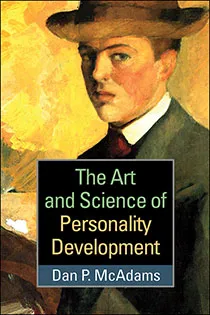
Dan P McAdams
Contemporary scientific psychology views human personality as made up of five key traits: openness to experience, conscientiousness, extraversion, agreeableness, and neuroticism. In his book from 2015, the US psychology professor Dan P McAdams introduces readers to these traits, explains their relative stability and their powerful consequences for our lives.
Crucially, however, McAdams explains that there is more to who you are than your basic traits –you are also defined by your goals and by the stories you tell about your own life. What I found especially inspiring was his exploration of how these elements of your identity can interact with your basic traits –suggesting that, by changing your goals and your personal story, you can begin to transform who you are.
Insight
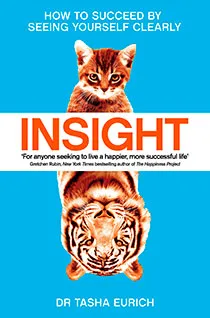
Tasha Eurich
An argument I make in my book is that before embarking on a journey of deliberate personality change, you must make an honest and realistic assessment of the kind of person you are today. Similarly, in her book from 2017, the US business psychologist Eurich argues that self-understanding is the "meta-skill" of the 21st Century.
Of course, there are various personality tests you can take online, and it makes sense to ask trusted friends and relatives to score you on those tests too (after all, we all have various blindspots about our own traits).
However, beyond those basic tests, Eurich offers various fun and creative ways to find out more about yourself and how you'd like to change, such as by asking yourself the so-called "miracle question" –if a miracle occurred overnight and a change occurred to you that had beneficial consequences for many aspects of your life, what would that change be?
I'm Sorry I'm Late, I Didn't Want To Come
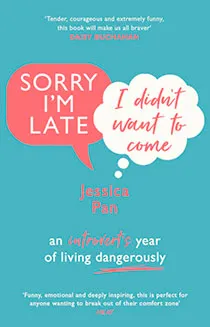
Jessica Pan
While there are many advantages to being introverted, such as the ability to work quietly without constantly craving fun distractions, there are also sound reasons why people might want to learn to become more sociable and outgoing – many studies show that, on average, extraverts are happier, have better health and more friends than introverts.
But is such a transformation realistic? An introvert myself, I found inspiration from Pan's hilarious memoir published in 2020, in which she describes how she came out of her own introverted shell and spent a year living as a full-blown extravert, including performing standup and joining an improv group.
Live More, Think Less
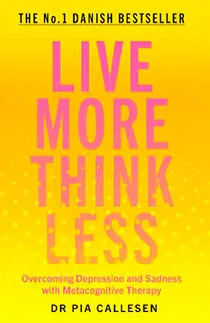
Pia Callesen
When people are surveyed about which trait of theirs they would most like to change, overwhelmingly the most popular choice is to become less neurotic –that is, to enjoy more emotional stability and to spend less time worrying.
It is encouraging that a growing amount of research suggests that various forms of psychotherapy can lead to reductions in trait neuroticism. One of the most promising approaches is so-called meta-cognitive therapy, which is the focus of clinical psychologist Pia Callesen's book from 2017.
For any chronic worriers out there, one of her tips is to set aside a set period of time each day to vent your worries, either thinking about them or writing them down. If you do this, you'll find it much easier to let your anxious thoughts go at other times of the day.
Rebel Ideas
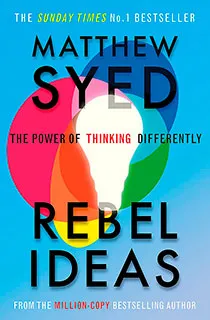
Matthew Syed
One nugget that surprised me the most when doing background reading for Be Who You Want was the far-reaching implications of the trait that is openness to experience. This describes your willingness to not only try out new things and go to unfamiliar places, but also to consider alternative viewpoints and arguments.
People who score highly in this trait tend to be more creative and they are even less vulnerable to dementia later in life. A book that will help you harness your openness is Syed's book Rebel Ideas. Through riveting case studies, he demonstrates the value of diverse thinking and the ability to approach problems with an open mind.
Indistractable
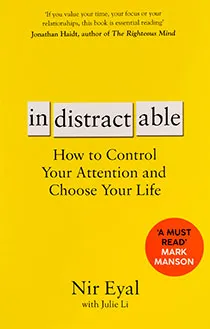
Nir Eyal
When it comes to success at school and at work, the personality trait that is most important is conscientiousness –this includes your orderliness and self-discipline. Luckily, you aren't stuck with your current levels of this trait.
A lesson I discovered from my research on Be Who You Want is that aspects of our personality are akin to skills. Whatever your natural inclinations, you can learn to become more focused, thus boosting your conscientiousness. Eyal's book from 2019 is one of the best I've come across for helping you to do this.
In contrast to many other books in the genre, he doesn't lay the blame for our collective loss of focus on social media and digital devices. Rather he teaches you to get to roots of why you are tempted to seek out distraction (whether from your phone or elsewhere), and how to take an ameliorative action, such as by reframing a task to make it more exciting or reminding yourself of your larger goals. One consequence of reading his book is that you're bound to see your conscientiousness increase.
The Wisdom of Psychopaths
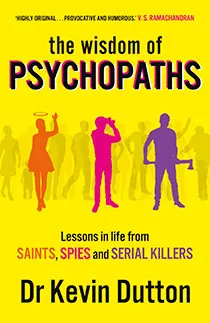
Kevin Dutton
Alongside the so-called Big Five personality traits, many psychologists also recognise three further dimensions to our characters, reflecting the so-called "dark side" of human nature –narcissism, Machiavellianism and psychopathy. It's generally understood that while these traits are morally dubious, they evolved because they each offer certain advantages.
Take narcissists –thanks to their surface confidence and bravado, they tend to grab the limelight and make a positive first impression (though it soon wears off). In Be Who You Want, I explore whether we can borrow some of the advantages of the dark traits, without slipping over to the dark side.
To help, I read Dutton's book –The Wisdom Of Psychopaths – in which he explores the notion of "successful psychopathy", based on the idea that there are upsides to this trait, including having "fearless dominance", which allows certain ruthless people to excel in certain arenas such as politics and special forces operations.
One way to channel this attitude in your own life (without becoming a full-blown psychopath!) is to interpret difficult situations as challenges, rather than as threats, for example by focusing on what you can control and seeing the experience as a learning experience rather than a test.
Read more book lists:
